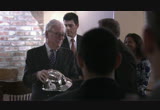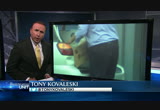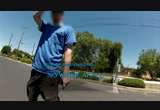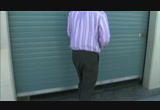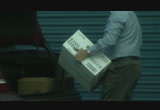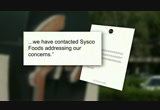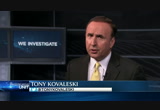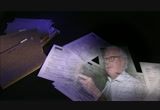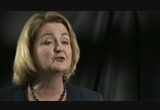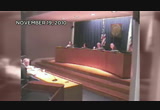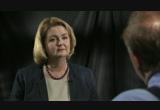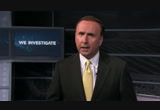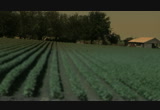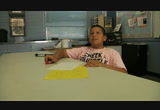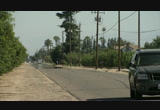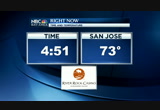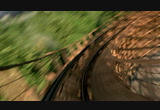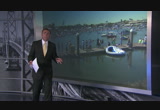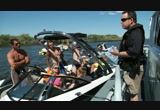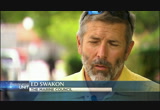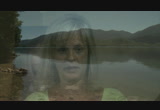tv NBC Bay Area News Special NBC August 11, 2013 4:30pm-5:01pm PDT
4:30 pm
. tonight, we investigate. >> where their food is coming from. >> are you storing food in these sheds? >> are we? >> fresh food headed to bay area restaurants being stored here? we go undercover exposing the unsanitary conditions and how a major food distributor puts a public health at risk. >> it's improper. it creates at least the appearance of improprieties. >> from europe to asia, the head of the public utilities commission, globe trotting for free. who's paying and why it's legal. >> this is a national disgrace that we need to stop. >> children, picking fruit and
4:31 pm
earning money in california fields the latest congressional battle over labor laws for kids, working in agriculture. >> these people are colliding with other boats. >> some laws of the land don't apply on the water. we investigate california's lax boating rules. here's chief investigative reporter tony koeb less xi. >> we investigate uncovering corruption and holding the powerful accountable. we begin with an investigation that exposed major problems with one of the nation's largest food distributors, problems after our hidden cameras unveeled secret storage places. major violations of state health codes. you'll see where we found food, raw meat and milk and other perishables sold to restaurants. investigative reporter vickie nguyen has the pictures and
4:32 pm
details that forced the state to move in. >> reporter: don't eat before you swim. that's what mom and dad used to say. but at this san jose swim center, the source of the food could be the problem. for weeks now we've kept cameras on these outdoor unrefridge rated shed across northern california rented by sysco corporation. you've you've dined out, you've probably eaton the food. they provide to 400,000 clients nationwide from hotels to hospitals. >> they provide every type of food you can think of. >> reporter: how is that food treated before it gets there? we found out after a source with inside information revealed the company's dirty secret. >> if this is something going on for a very long time. over ten years. enough is enough. the public needs to know where their food is coming from.
4:33 pm
>> reporter: it's 4:30 on a tuesday morning. watch as a sysco truck arrives at the shed. it unloads box after box carrying cheese and raw pork. throughout the day we carry salesman picking up food in personal cars to deliver to customers. five hours later, this salesman finally loads a piece of pork to his trunk. followed it to the back of this restaurant. the pattern was the same at every shed we observed, up to six days a week, including hot days when we measured the temperature at a nearby unit at 81 degrees. >> what about storing like dry goods or foods or anything like that. >> no food of any kind, no water at all. >> that's the policy at most storage facilities but it doesn't stop sysco from keeping raw chicken and beef and vegetables and milk on the floor
4:34 pm
a few feet from mouse traps. >> you guys got a mouse? >> that's preventative maintenance. >> reporter: we spotted this sales woman, she picked up food after it was kept for three hours in a shed but didn't drop it off right away. she picked up a friend instead. they made a starbucks stop then hit the road for the swim center. >> are you storing food in these sheds? >> are we? i'm not allowed to talk, sorry. >> it's a common thing because, you know, it's a distribution -- we questioned sales people in concord and san jose and this employee acknowledged pork sitting like this for five hours is not acceptable. >> five hours is a problem, yeah. >> but his colleague was more concerned with shutting the shed. >> reporter: can you tell us where this stuff is going? >> he didn't but the video speaks for itself. you're looking at sheds used by sysco-in gilroy, san mateo, san
4:35 pm
jose, and concord. we confirmed sysco used 14 sheds across california, from monterey and we reported what we found to health inspectors. >> i was shocked with a company of this size. >> reporter: they admitted they used the sheds and inspectors found rodent dropperings and unsanitary conditions. >> i think this became based on what we're seeing before, what turned into a good idea from a marketing perspective what's thought through on the safety side of things. >> reporter: investigators are now reviewing records to determine the number of violations. sysco faces major fines for putting public health at risk. >> 3,000 deaths a year are linked to food borne illness. >> we showed our video to some
4:36 pm
of the clients, including tower grille. >> this is a box of pork in a shed in concord for five hours before it came here to this restaurant? you didn't know this was happening? >> not at all. we definitely don't practice that here. >> reporter: this swim center manager said when he saw our first report last week he called sysco and he's reviewing vendors. >> we haven't had any complaints. >> all of us buy from sysco. >> the general manager declined to watch our video of food kept in the shed for four hours that ended up his restaurant. he issued a statement saying the majority of our purchases consist of nonperishable supplies. we contacted them addressing our concerns. as to the company's whose motto is good things come from sysco. sources question why these sheds were hidden in plain sight for
4:37 pm
so long. >> they declined to speak on camera but said it has stopped using all storage sites and sent out this letter to all bay area customers saying effective immediately all products delivered by sysco san francisco, will be transported by vehicles equipped with appropriate temperature controls. sysco is refundsing customers for product s stored in those sheds. when rereturn -- >> being wined and dimed on lobbiest dimes. >> flying free, we'll show you where and why it's allowed.
4:39 pm
4:40 pm
free travel is all legal, but we ask, is it ethical? >> you poor son of a [ bleep ] it's pathetic what you're doing. >> you might remember michael. >> what' the message you sent by coming to napa instead of speaking to the senate. >> you're very antagonistic. >> he wasn't found of our questions when we found him at an exclusive napa resort and winery. >> have a moment? >> oh, god. >> just a couple of questions. >> he wasn't pleased to see us in sacramento. >> will you answer my questions, sir? sir -- >> i find you extremely insulting. >> reporter: how will the president of the public utilities commission respond to the questions uncovered in these documents? records filed with the state show since 2007 michael peevevy accepted $165,000 in gifts and
4:41 pm
free travel. in fact, records obtained by the nbc bay area investigative unit found in the last six years president peevevy accepted 16 trips, each valued at more than $6,000. >> this time last week i was in china -- >> reporter: trips to hong kong and sweden. globe trotting to spain and israel. >> i get the award in the last month or year for traveling the farthest although the press is not up on all of my travels. >> but president peevevy may have spoken a bit too soon. we also know about his big ticket trips, $12,500 for a 2010 excursion to sydney, australia. then there was this $13,000 all expense paid trip in 2008 to new zealand. in 2009, $14,000 for another
4:42 pm
trip to spain. and in 2007, michael peevevy accepted nearly $15,000 in travel for a trip to south africa. >> clearly it is legal. the question is is it ethical? and there's a big difference between the two. >> he's one of california's premiere experts in government ethics. >> we show the travel records to bob stern. >> it always raises questions to me when we have such extensive travel -- i don't think that private groups should be providing travel for public officials. >> that's right, private groups and some non-profits are picking up the tabs for the travel. some might call it a loophole. it's a state law allowing special interest groups, lobbyists and executives special access to power brokers like michael peevevy. it's wherever a commissioner wants to go anywhere in the world. all expenses paid, except for every step of the way, you're with a gaggle of lobbyists
4:43 pm
lobbying you. >> lor receipt at a lynch served from 2000 to 2002. >> you were offered trips like this? >> absolutely. >> what did you say? >> no. >> why? >> it's improper. it creates at least the appearance of impropriety. and i know what happens at those trips. >> here's a stark contrast during lynch's five years, include being two as president, her travels totalled only $6,000 or $1200 etch year. peevevy's $165,000 over the past six years averaging to more than $27,000 per year. >> what that says to me he's being wined and dined on lobbyist dimes. >> reporter: out of the most expensive free trips, six were bank rolled by -- >> the california foundation of environment and economy. >> receives large donations from many of the utilities and energy companies peevevy regulates. the same group that sponsored
4:44 pm
this conference earlier this year in napa. >> you spent time with the utilities you're paid to regulate. >> there's no utilities here i know of. >> pg&e was here. >> one person, i don't know. >> sent peevevy to new zealand, ireland, italy and south africa in the past six years, nearly $64,000 from one non-profit group. >> it's invid yus advantage that the companies that pay have. as a commissioner, you are supposed to look only at the facts in front of you and not at who you went golfing with or on safari with or who paid for your $300 dinner last night. >> the law needs to be changed. until then, public officials will keep taking the trips. >> mr. peevevy turned down our request to talk about the trips. surprised? >> knowing mike, i'm not surprised.
4:45 pm
if you take a government job, you are obliged to be transparent and part of being transparent is to talk with the press. >> and that takes us back to that question. mr. peevevy, mr. peevevy, may i get your attention sir? >> after denying a request for an interview, we tried to talk to michael peevevy. after a recent meeting in san francisco. >> mr. peevevy, we would like to talk about your travel, sir. >> your utility bills help pay michael peevevy a salary of $132,000 each year. all of that travel added up to 119 days away from the san francisco office for about four weeks a year. the public utilities commission would not tell us if that time is work on vacation. finally, just this week assembly speaker campos responded to our investigation calling peevevy's decisions disappointing and calling for lawmakers to take a closer look. coming up after the break, we
4:46 pm
4:47 pm
[ horn honks ] kevin! toaster strudel, yah? ♪ warm, flaky, gooey toaster strudel. faster than kenny can dodge a question. honey, how'd that test go? [ female announcer ] in just 60 seconds, you've got snack-defying, satisfying mmmm. totino's pizza rolls. mmm hmmm. mmmm. [ female announcer ] zero to pizza. pronto.
4:48 pm
> long hours and questionable working conditions for kids. steven exposed the problems and now reaction from washington, d.c. >> reporter: it's the beginning of a long summer and these young middle schoolers are out of class. helping their dads unpack. but unlike most youth, these kids are not on vacation. instead, they are helping their families move into a local my grant worker camp and many preparing to work all summer. some of them in the fields of california's central valley. working for large corporate farms. putting in 10 to 12-hour days in 100 degree heat.
4:49 pm
>> they do come and work as much as they ke. >> ruby garrison oversees the camp where these families live. >> kids from a very small age until teenagers and as soon as they get an opportunity, they work on the field as well. >> reporter: for 14 months now, nbc bay area's investigative unit followed some of these children and their families as they perform some of the hardest work there is, pruning, picking and packing the fresh fruits and vegetables that feed america and the world. >> who else out here worked in the field? >> we found dozens of children born here in the united states who said they've been working in the tomato fields and peach orchards and everything in between since before they were 13 years old. >> i was 11. >> some since the ripe age of 8. all of it is possible because of an exception in u.s. labor law that allows a child to work the fields even though that same law requires a child to be at least 14 years of age before he or she
4:50 pm
can legally work even limited hours indoors at the fast food restaurant office or grocery store. >> we need to stop this. this is a national disgrace that we need to stop. >> reporter: that's why this month, congresswoman has introduced the care act to congress. >> we have approximately 400,000 children who work in agriculture and they are not working on their family farms, these are children who are being hired to work on these farms. >> reporter: if it becomes law, the care act would give the same labor protections to children working in agriculture as children who work in any other industry in america. the bill faces steep political opposition in washington. those who oppose it say it would hurt family farms and groups like h 4h club. she says there are exemptions for groups and family farms in her proposed law.
4:51 pm
>> i believe the american public needs to be aware of this fact and that is why i am so pleased that you and others are bringing attention to this tragedy in our country. >> the congresswoman hopes to hold hearings on capitol hill later this year. coming up after the break -- >> did you have anything to drink today? >> no. >> we investigate safety on the water and why laws of the land don't apply on a boat.
4:53 pm
4:54 pm
elise kirchner. out on the water there can be a lot of distraction and sometimes the law of the lachbd can be forgotten. >> do you have anything to drink today? >> no. >> reporter: the lieutenant sees it all out on the delta, a water way that saw the most accidents in california since 2007. >> you wouldn't give a kid a 16-year-old, the keys to your car and tell them to drive on the streets without any education. it's hard to believe that we're doing that with boats. >> reporter: going out with powell and the sheriff's department on a recent sunday -- >> any reason why i pulled you over? >> i do not. >> no idea? >> reporter: boaters who pulled over didn't know the basic rules of the road. >> i'm going to write you a $500 for violating the zone okay or you can take this boater safety course -- >> since 2007, our state had the
4:55 pm
most and texas came in third. >> you don't need a license to drive a boat. >> reporter: do you think there should be? >> yes. >> reporter: jason and maryann know what can happen when boaters aren't paying attention. they were celebrating their son's birthday near like shas at a when another boater plowed into a boat carrying their children. >> they were sitting across from each other and taylor got knocked out and when she came out with damian, efgs all bloody and stuff. she said that traf yan wouldn't wake up. >> reporter: trafian later died from boat injuries. >> ran right over the top of the boat, our boat. >> he wasn't paying attention? >> he wasn't paying attention. >> reporter: the investigative
4:56 pm
unit found it was not paying attention and lack of experience. just a fraction by alcohol use. yet california is one of five states with a zero boater education requirement. >> the waters in the central bay here are the most challenging in the world to sail. >> reporter: that's why san francisco sailing company owner says before he rents out a boat, customers must pass two courses. but it's been a battle to get it passed into law. in 1999, governor greg davis vetoed a bill that would have required education training to operate a boat saying there is little evidence that a written test alone will improve the piloting skills of molt or boat operators or reduced boating accidents. a similar bill was introduced but failed again. >> we participate in the investigative process, whether it's state or federal or local. we don't have lobbyists per se. >> mandating boater education has also meant strong opposition
4:57 pm
from the voting industry. ed with the marine trade organization believes voter education is important but should not be required. nor should boaters be forced to get a license to operate. >> it might just be a taxation or revenue source that we don't think needs to be imposed on the boating community at this time. >> reporter: but if the law changed our water ways could be safer. we found states that require boater education on average had a lower rate of fatal accidents than states that don't. >> we just wonder what we should be like today? >> yeah. >> reporter: with so few safety requirements, the hill family says they haven't wanted to go back on the water since they lost their daughter. >> you could be the safest people ever watching everything your kids do, putting life jackets on them or helmets or whatever you do, and it doesn't
4:58 pm
matter. >> the state senator of walnut creek plans to introduce a bill that would require all boaters to take a safety education course before getting on the water. if you have a story for us, call our tip line. 888-996-tips or send an e-mail to the unit at nbcbayarea.com. we thank you for watching, your invited to join us regularly here on nbc bay area. because we investigate.
5:00 pm
nbc bay area news starts now. good evening. i'm terry mcsweeney. diane dwyer has the night off. b.a.r.t. riders can breathe a sigh of relief until at least october. today a judge ordered a 60-day cooling off period between b.a.r.t. and its two largest unions. during this time the two sides will continue to meet and try to strike a deal. as a matter of fact, that's what they were doing again today. kimberly tere live in oakland. >> reporter: both sides were back here at 1:00 this afternoon, that's after putting in a 14-hour day yesterday. they all left at about 12:30 in the morning. the union said they would take this morning to go over the numbers on b.a.r.t.'s most recent proposal. despite the judge
122 Views
IN COLLECTIONS
KNTV (NBC) Television Archive
Television Archive  Television Archive News Search Service
Television Archive News Search Service 
Uploaded by TV Archive on

 Live Music Archive
Live Music Archive Librivox Free Audio
Librivox Free Audio Metropolitan Museum
Metropolitan Museum Cleveland Museum of Art
Cleveland Museum of Art Internet Arcade
Internet Arcade Console Living Room
Console Living Room Books to Borrow
Books to Borrow Open Library
Open Library TV News
TV News Understanding 9/11
Understanding 9/11
